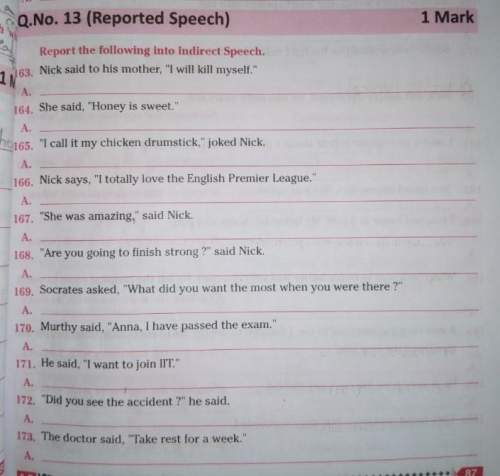
English, 21.07.2019 05:10 williamslyric
Read this excerpt from “schenck v. u. s., 249 u. s. 47 (1919)" and answer the question that follows:
the document in question upon its first printed side recited the first section of the thirteenth amendment, said that the idea embodied in it was violated by the conscription act and that a conscript is little better than a convict. in impassioned language it intimated that conscription was despotism in its worst form and a monstrous wrong against humanity in the interest of wall street's chosen few. it said, 'do not submit to intimidation,' but in form at least confined itself to peaceful measures such as a petition for the repeal of the act. the other and later printed side of the sheet was headed 'assert your rights.' it stated reasons for alleging that any one violated the constitution when he refused to recognize 'your right to assert your opposition to the draft,' and went on, 'if you do not assert and support your rights, you are to deny or disparage rights which it is the solemn duty of all citizens and residents of the united states to retain.' it described the arguments on the other side as coming from cunning politicians and a mercenary capitalist press, and even silent consent to the conscription law as to support an infamous conspiracy.
according to the protest document, what violates the constitution?

Answers: 3
Another question on English

English, 21.06.2019 16:00
Which of these sentences has an error in subject-verb agreement? a. official procedures calls for students who are tardy three times to serve detention. b. as a result of her efforts, a team of volunteers signs up every month to clean the city's parks. c. the committee of parents protested loudly at the school board meeting. d. each of the neighbors brings a dish to share at the pot-luck gathering.
Answers: 1


English, 22.06.2019 09:00
King claudius has resolved to do what (besides send hamlet to england)? what does this reveal about his character?
Answers: 3

English, 22.06.2019 11:30
Asap : ) read the passage about the life of clara barton and the table below it. clara barton was born on december 25, 1821, in oxford, massachusetts. as a child, clara was very shy. she first found her calling while caring for her brother after he fell from a rafter in their barn. despite the fact that most teachers were still men at the time, clara became a teacher at the age of 15, as well as one of the first women to work for the federal government at the us patent office. in 1881, clara opened the first chapter of the american red cross in the united states and served as its first president. the american red cross is a relief organization that offers assistance to victims of such disasters as the 1889 johnstown flood and the 1900 galveston flood. she served as president for 23 years before resigning amidst claims that money was being mishandled internally. the civil war was a bloody war fought between the years 1861–1865. during the war, clara sought to the soldiers in any way she could. she collected needed supplies and distributed them to the union army. these supplies included items such as food, bedding, and clothing. however, clara was not content to sit on the sidelines; she often risked her own life to care for soldiers wounded in battle. for these deeds, she was nicknamed the "angel of the battlefield.” when the war ended in 1865, clara worked for the war department in various ways. in the table, what information best fits under the heading "what i learned about her accomplishments”? a. clara barton was born in 1821 in oxford, massachusetts, and was very shy as a young child. b. clara barton worked as both a teacher and for the federal government in the us patent office. c. clara barton cared for wounded soldiers during the civil war and started the first american red cross chapter in the united states. d. clara barton was president of the american red cross during the 1889 johnstown flood and the 1900 galveston flood.
Answers: 2
You know the right answer?
Read this excerpt from “schenck v. u. s., 249 u. s. 47 (1919)" and answer the question that follows:...
Questions

Mathematics, 20.09.2020 07:01







Biology, 20.09.2020 07:01

History, 20.09.2020 07:01


Computers and Technology, 20.09.2020 07:01

Mathematics, 20.09.2020 07:01

Mathematics, 20.09.2020 07:01

French, 20.09.2020 07:01

Mathematics, 20.09.2020 07:01


Chemistry, 20.09.2020 07:01

Mathematics, 20.09.2020 07:01





